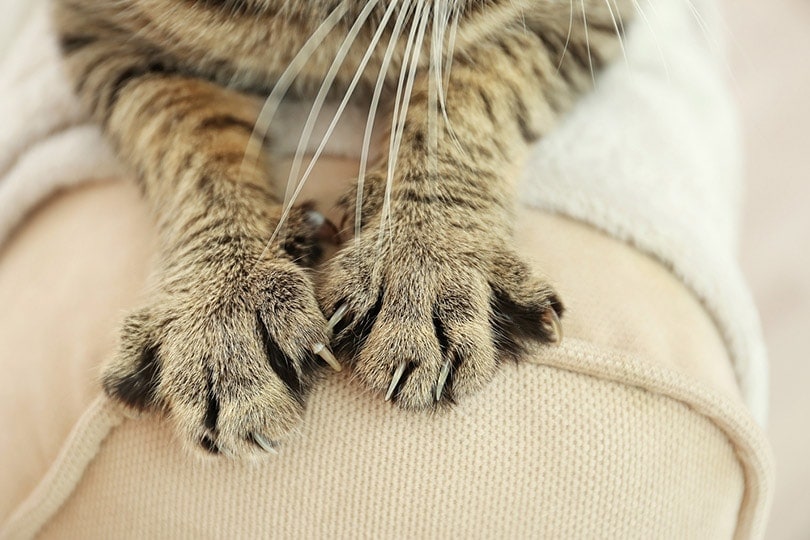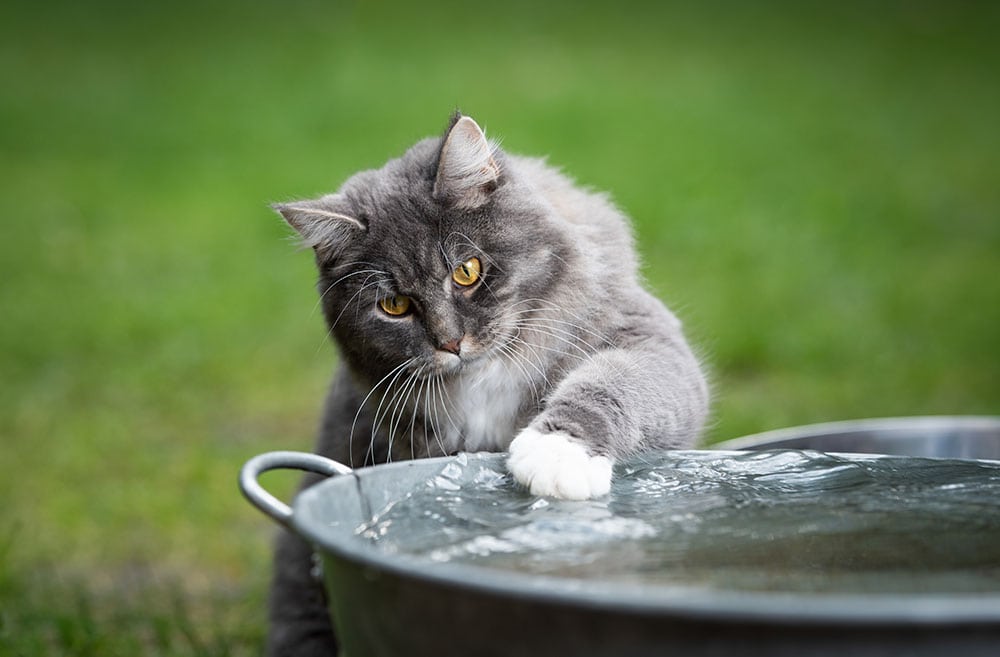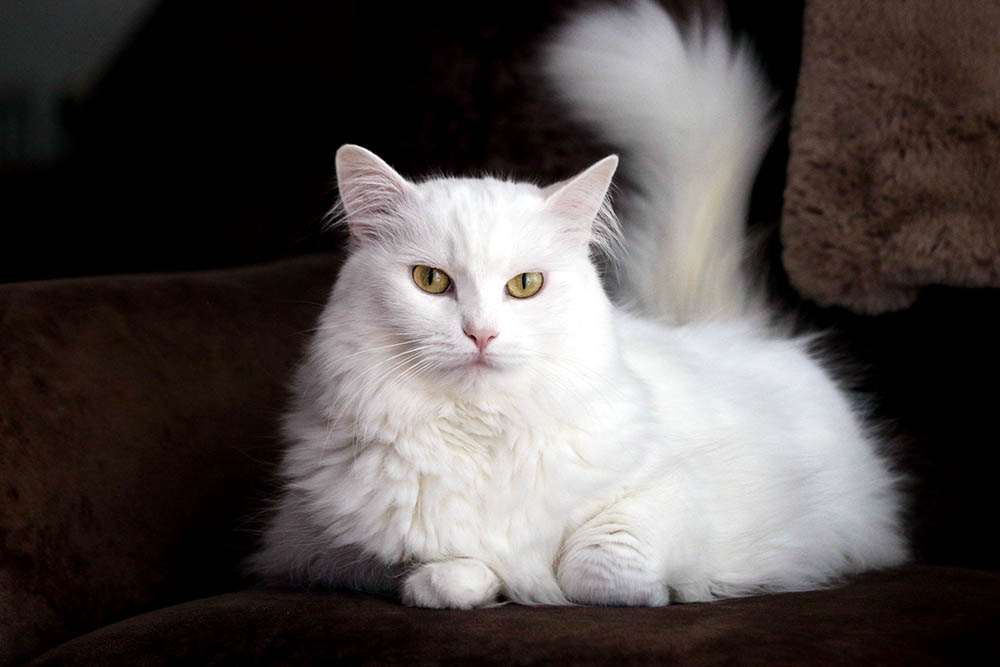Can Cats Eat Cinnamon? Vet-Reviewed Health & Safety Guide

Updated on

If your curious kitty has ever snooped around in your kitchen, you may have wondered which foods they can and cannot eat. Cinnamon is a common cooking and baking spice that your cats are likely to have contact with, so it’s important to know whether or not it is safe for your pet to consume.
While the ASPCA mentions that cinnamon is technically non-toxic to cats, the question of toxicity is complicated based on the form of cinnamon your cat eats. Therefore, cinnamon is not recommended for cats.
In this article, we will discuss cinnamon toxicity and why you should avoid feeding cinnamon to your cat, as well as other foods you should never feed your kitty.
Why Cinnamon Is Bad for Cats
Cinnamon contains a compound called coumarin, which cats do not have the ability to break down. This is because they don’t have the same liver enzymes that humans do. Ingestion of this compound and the inability to process it may result in blood-clotting issues for your cat. In addition, cats may also get a reaction in their mouths when they eat cinnamon. These often present as redness, irritation, and excessive salivation.
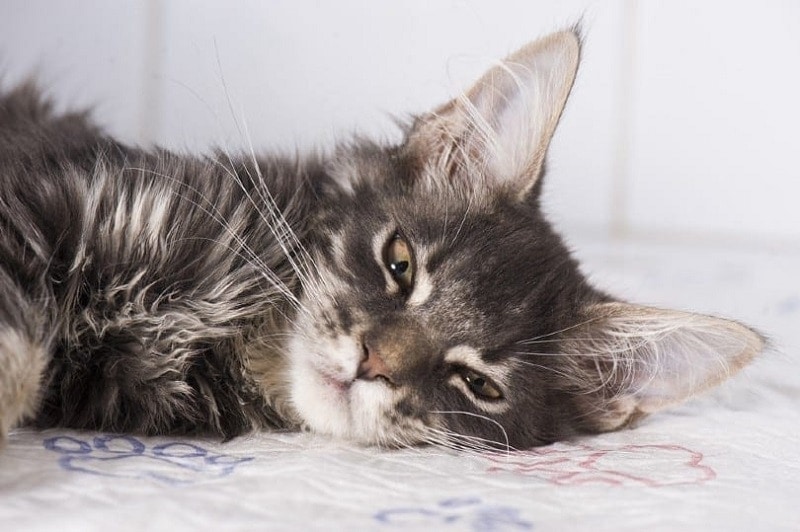
 Types of Cinnamon and Their Safety
Types of Cinnamon and Their Safety
There are many household staples that contain cinnamon. Here are some common ones, as well as information about their safety with regards to your cat.
- Powdered Cinnamon – Not considered a major risk for cats unless ingested in very high quantities (example: teaspoon). Best if avoided.
- Cinnamon Essential Oil – Very dangerous, as oils are often highly concentrated. Should be avoided at all costs. Cats should not be in rooms where essential oils are to be used.
- Cinnamon Candles – The amount of cinnamon in candles is low; however, they should be stored out of your cat’s reach. Never leave cats alone with a burning candle.
- Cinnamon Sticks – Keep out of reach from cats since the strong smell of the stick may entice your cat to chew on the stick.
- Cinnamon Broom – Their scent might appeal to humans but is often quite powerful and an irritant for cats. Best if avoided.
 Signs of Cinnamon Toxicity
Signs of Cinnamon Toxicity
Cinnamon can pose health risks to your cat depending on the form and the amount your cat consumes or chews. Cinnamon toxicity occurs when the spice is ingested in high amounts or when your cat is exposed to high amounts (in the case of essential oils).
- Jaundice (yellow mucous membranes, most obvious at your cat’s gums)
- Vomiting
- Diarrhea
- A rapid heartbeat (difficult to assess if your cat has thick fur)
Some cats may develop allergic reactions to cinnamon after repeated exposures. In such a case, your cat’s body mistakes cinnamon as a “bad” item and produces antibodies against it. Each subsequent exposure may increase the intensity of the signs of an allergic reaction.
- Hives
- Rashes on the skin
- Itchiness (your cat may chew, bite, or lick their paws, tail, and body)
- Scabs on the skin
- Vomiting
- Diarrhea
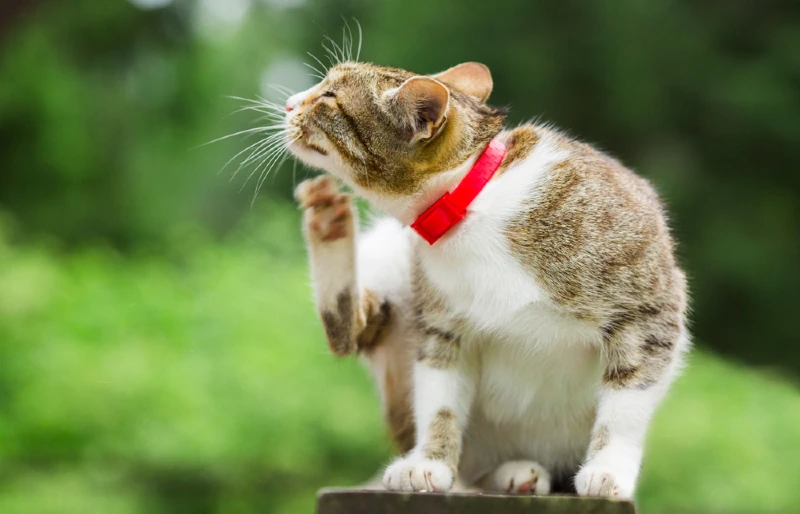
What Other Foods Should I Avoid Feeding My Cat?
In addition to cinnamon, there are some other foods you should avoid feeding your cat. While you may not purposefully feed your cat some of the foods on this list, we all know that cats’ curiosity can get the better of them.
- Alcohol
- Dairy products
- Grapes and raisins
- Caffeine
- Chocolate
- Candy
Dairy may come as a surprise to you because, in popular culture, domesticated cats are often shown drinking milk or having cheese. Dairy is problematic because cats are lactose intolerant. While they may love the taste of milk or cheese, they are in for a stomach ache and possibly diarrhea later on if they do consume it.
Now that you know what you can safely feed your cat, it’s just as important to find a bowl that supports their health and well-being. With whisker-friendly bowls and a wide tray to catch any spills, our Hepper NomNom Cat Bowl is our favorite option.
Conclusion
In conclusion, if your cat is exposed to cinnamon, they may develop toxicity depending on the source and amount of cinnamon they are exposed to.
To avoid any problems, it is best to keep your cat away from your cinnamon when you are using it. You should also avoid purchasing any cinnamon essential oil diffusers, as these are very dangerous for cats. It can’t hurt to be overly cautious to prevent your beloved pet from experiencing health problems.
Featured Image Credit: Hans, Pixabay





